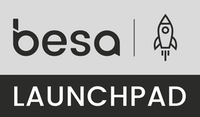5 common teacher concerns about about the RSHE review

Relationships and sex education seems to be rarely out of newspaper headlines at the moment due to the imminent DfE review of statutory content. Welsh schools are also grappling with a new guidance, and international schools that follow a broadly UK curriculum will undoubtedly be looking towards the UK to take a steer on their student Personal Development Education curriculum. The uncertainty around the DfE review is leaving busy teachers wondering where to turn to make sure their resources and staff CPD offer remain relevant when the new guidance is released in the Autumn. So, what are the top 5 teacher concerns about the RSHE review that we are hearing from schools?
1. What is likely to change in Relationships, Sex and Health Education (RSHE) following the review?
This is the million-dollar question and from keeping an ear to the ground and talking to organisations working closely with the DfE, such as the Sex Education Forum, a few clues are starting to emerge. An ‘expert’ panel has been appointed by the DfE, and we are hoping that views of students will be included. You can read about the DfE panel and their terms of reference here: https://www.gov.uk/government/news/next-steps-taken-to-ensure-age-appropriate-relationships-sex-and-health-education
There is likely to be some clarification in the guidance around the age at which some topics can be delivered. The most contentious areas as you will probably have seen in the press are around gender identity, LGBTQ+ and sex education. However, several recent and high profile cases challenging different aspects of the current RSHE guidance have not been successful . We would hope that these cases suggest that there is limited appetite for extensive censorship or a complete re-write of the current guidance. Clarity is needed in places, but there are also many positive elements in the statutory RSHE document such as mental health education and the drive for inclusion which should not be lost. When it comes to sex and relationships education we firmly believe that most teachers are well placed to deem what is appropriate for their students.
There have been positive suggestions that the guidance around mental health education, including lessons about suicide ideation and death by suicide will be strengthened, and this is an area where students regularly request more input according to the results of our pupil survey with 9000+ responses this year.
Nevertheless, it is understandable why teachers are feeling uncertainty about their curriculum offer in the new academic year. We have this covered for our partner schools because our award-winning resource library has built-in flexibility enabling schools to ride any changes brought about by the DfE review. Using our resource library our partner schools can build their PSHE/PD programme that best meets the needs of their students and setting. There is more content compared to other ‘off-the-shelf’ resources, providing additional flexibility which is enhancing the confidence of our partner schools that their investment with us will stand the test of time. All the library packs are editable, and we constantly update material to keep our schools up-to-date with the fast-changing world of PSHE. So, whatever changes, our partner schools are well positioned to immediately react to the DfE expectations.
2. Will there be CPD to run alongside the new guidance?
We know that most teachers are not PSHE specialists, but many will still find themselves delivering topics they may have little knowledge about. Many of these are often sensitive or contentious. In 2020 when RSHE became statutory in English state schools, there was some training available from DfE, but not everyone got an opportunity to attend and reviews of the online DfE modules were mixed. There is currently no mention of teacher CPD to coincide with the new guidance. CPD for PSHE is available from various organisations but it’s often expensive and not always responsive to teacher needs. We have this covered as we regularly deliver free CPD sessions on the topics that teachers request. Teachers from any school can join our live webinars, but our partner schools also have access to recordings and slides as part of their subscription enabling them to deliver their own training sessions in school.
In the past academic year, we have supplied free online training to teachers from around 500 schools with our Misogyny and Sexual Harassment teacher webinar being the most popular session. Our ‘Tackling Misogyny’ training was also awarded a Highly Commended at the National Education Resources Awards in May 2023.
3. Will student voice to inform PD/PSHE lessons become statutory?
Student voice can transform your programme, making it more relevant to your cohort and inform your staff CPD by providing comprehensive information about what’s happening in your setting. Feeding back data to stakeholders, including students is also a great way to communicate to the wider community, demonstrate curriculum intent and impact, and explain why you are prioritising specific areas of PSHE for your students. We don’t know if student voice will become a compulsory part of PSHE or remain a strong ‘recommendation’, but we do know that DfE intends to take pupil views into consideration as part of the RSHE review. There are no details about the mechanism for this at present.
With 9000+ students completing our ‘How Are You?’ survey in 2022/23 our partner schools can compare their student voice data to our wider amalgamated results. We have student voice covered and our partner schools have benefitted from this by seeing more engaged students and staff. This has been reflected in their Ofsted or ISI inspections where inspectors have voiced very favourable comments about the survey to support the development of a needs-led PD/PSHE programme. Our ‘How Are You?’ survey is included in the Chameleon PDE subscription for being a partner school so there is no additional cost. We will also be offering the survey as a separate product from September 2023 at a very competitive price compared to other school survey tools on the market.
4. What about the ‘age-limits’ being proposed?
Further guidance around age-appropriateness of material as mentioned above is a certainty of the revised RSHE guidance. However, we know that schools are considering this question regularly and the answer isn’t as simple as deciding on a number. Students do not all follow the same trajectory on either physical or emotional development and that's the problem with the current and any future guidance. In addition, what would a school do if a ‘banned’ topic is raised by students or a behaviour that needs addressing falls outside of the designated DfE age-range? Fortunately for our partner schools the library approach we take (rather than having a set and immoveable programme) means they can adapt easily to whatever the DfE deems age-appropriate. So, we have this covered. Our resource library takes a spiral, progressive approach developing topics to become increasingly in-depth as students mature. Although we have marginally designated age-ranges for the resource packs many of our partner schools use the library packs aimed at younger students with older cohorts if they feel the group is less mature, they are not appropriate, or have missed content for any reason. Equally, if the DfE rule out certain topics, we will update individual packs accordingly so our partner schools will know clearly what is statutory, rather than having the onerous task of unpicking a published scheme of work that isn't editable as with some other providers.
Our aim is always to empower and build confidence with PD/PSHE leads putting them in charge of building the programme that best meets student need. Providing an extensive resource library with lots of opportunity for differentiation and the ability to easily edit material means that providing ‘age-appropriate’ lessons is straightforward.
5. Will the increased focus on PSHE as part of inspection continue past September?
How schools support the personal development of their students has become a much higher priority in inspection and this is something we agree with. PSHE/Health and Wellbeing is a key part of personal development but there are lots of additional considerations too, from character education, to careers, to cultural capital to name just a few. Ofsted are in the process of compiling a Personal Development Subject Review and according to the DfE will be involved in the review of RSHE. Regardless of inspectors, our aim is to provide our partner schools with excellent resources that support wider personal development aims for students, in addition to great PSHE.
We never want inspection to be the tail wagging the dog when it comes to your PD/PSHE programme, however, building a programme that ticks inspection boxes as well as student need is a good place to be. We have this covered as our combination of student voice survey, flexible resource library, included staff CPD, assessment/progress templates and lots of supporting guidance documents, including the questions most likely to be asked by inspectors, will help put you in strong and confident position if you get the ‘phone call’.
Our ‘wrap round’ PSHE support won the best secondary resource category at this year’s National Education Resources Awards and our services aim to provide PSHE/PD leads with the tools to put them firmly in the driving seat. By working closely with our partner schools, listening to students, and collaborating with our teacher advisory board we can confidently say ‘we’ve got you covered’ whatever the DfE review brings.
To find out more have a look at our webpage for secondary schools here https://www.chameleonpde.com/resources/about?resource_type=secondary or contact us for an informal chat at info@chameleonpde.com




